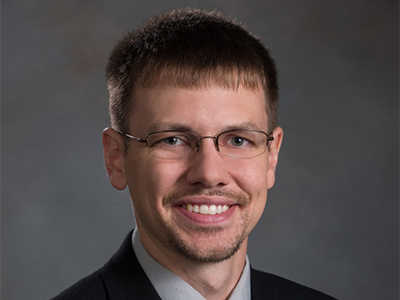When you hear Derek Heeren is an irrigation engineer, you probably don’t think of satellites and unmanned aircraft and cosmic rays. But that’s exactly where the future of variable rate irrigation (VRI) management lies – and exactly what Heeren has been developing with help from DWFI.
With his own research and in collaboration with other DWFI fellows and colleagues around the world, Heeren has developed sensors and software to help farmers precisely apply different amounts of water to different areas of fields.
As in many other agricultural research areas, technology and data are only good if they can be marketed and used daily. So, Heeren is collaborating with commercial irrigation companies to make VRI software practical for farmers at all production levels. The goal is to overlap data from multiple sources to provide more clarity and confidence in the products.
“The ultimate goal is to get closer to a process of automated irrigation with input from sensors, which saves farmers time and allows them to produce more food with less water,” Heeren explained. He estimated practical adoption would take place within 5 to 10 years.
In the meantime, as with all DWFI research fellows, Heeren focuses on educating the next generation of specialists, from undergraduate students who go on to work as producers or industry consultants to graduate students who become leaders in industry or academia.
One of his next goals is to create more online irrigation courses for students who can’t travel to Nebraska. “The fundamentals are as important as the cutting edge,” Heeren said. “If the goal is impact, we need both.”


